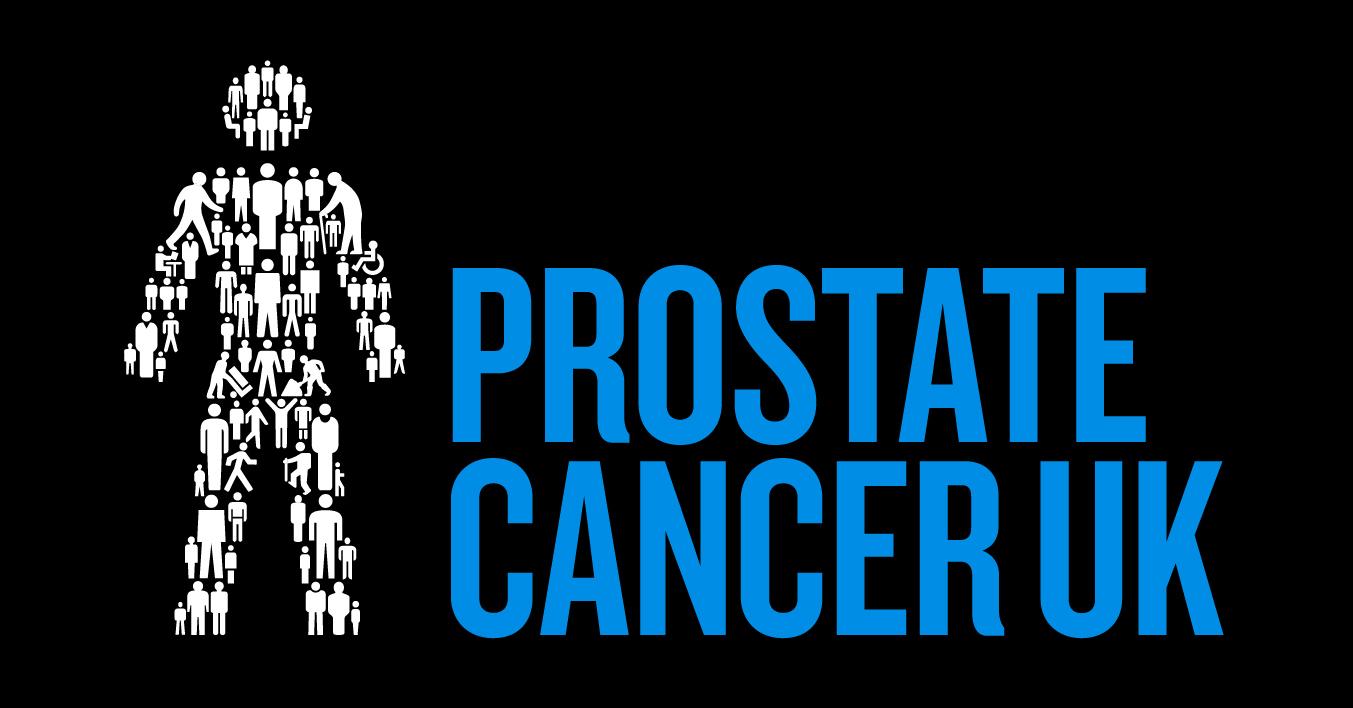Prostate Cancer Awareness Month: PSA Blood Test
Cancer / Men's HealthThere are advantages and disadvantages to having a PSA test. You’ll need to talk to your GP or practice nurse about these before deciding whether to have one. We know that some men have trouble getting a PSA test and have included suggestions for what to do if this happens.
What is the PSA blood test?
The PSA test is a blood test that measures the amount of prostate specific antigen (PSA) in your blood. PSA is a protein produced by normal cells in the prostate and also by prostate cancer cells. It’s normal to have a small amount of PSA in your blood, and the amount rises slightly as you get older and your prostate gets bigger. A raised PSA level may suggest you have a problem with your prostate, but not necessarily cancer.
Who can have a PSA blood test?
You have the right to a PSA test if you’re over 50 and you’ve thought carefully about the advantages and disadvantages. If you’re Black or you have a family history of prostate cancer, this can increase your own risk – so you may want to speak to your GP about having a PSA test from the age of 45.
You may also be offered a PSA test if you have symptoms of a possible prostate problem. Some men are offered a PSA test as part of a general check-up. You should still think about the advantages and disadvantages and whether the test is right for you before agreeing to have one.
What could affect my PSA level?
Prostate specific antigen (PSA) is produced by healthy cells in the prostate, so it’s normal to have a small amount of PSA in your blood. The amount rises as you get older because your prostate gets bigger.
Prostate problems, such as an enlarged prostate, prostatitis or prostate cancer, can cause your PSA level to rise – but lots of other things can affect your PSA level too, including the following.
- A urine infection – You may have a test for a urine infection as this can raise your PSA level. If you have an infection, you’ll be given treatment for this. You’ll need to wait until the infection has gone – around six weeks – before you have a PSA test.
- Vigorous exercise – You might be asked not to do any vigorous exercise in the 48 hours before a PSA test.
- Ejaculation – You may be asked to avoid any sexual activity that leads to ejaculation in the 48 hours before a PSA test.
- Anal sex and prostate stimulation – Receiving anal sex, or having your prostate stimulated during sex, might raise your PSA level for a while. It might be worth avoiding this for a week before a PSA test.
- Prostate biopsy – If you’ve had a biopsy in the six weeks before a PSA test, this could raise your PSA level.
- Medicines – Let your GP or practice nurse know if you’re taking any prescription or over-the-counter medicines, as some might affect your PSA level. For example, some medicines used to treat an enlarged prostate.
- Other tests or surgery – If you've had any tests or surgery on your bladder or prostate, you may need to wait up to six weeks before having a PSA test.
- Urinary catheters – If you have a catheter to drain urine from your bladder, you may need to wait up to six weeks after it has been put in before having a PSA test.
Having a PSA blood test
You can have a PSA test at your GP surgery. Your GP or practice nurse might talk to you about having a PSA test if you're worried about prostate problems, if you’re at increased risk of getting prostate cancer, or if you have symptoms such as problems urinating.
What will happen at the GP surgery?
If you don't have any symptoms, your GP or practice nurse should talk to you about the advantages and disadvantages of the PSA test before you decide whether to have one. You should tell them if anyone in your family has had prostate or breast cancer.
Your GP or practice nurse will also talk to you about your general health and any other health problems. If you have a serious health problem that means you wouldn't be fit enough for treatment for prostate cancer, or if treatment wouldn’t help you to live longer, your GP may not recommend having a PSA test unless you have symptoms of a possible prostate problem.
If you decide you want a PSA test, your GP may also suggest doing a digital rectal examination (DRE) – sometimes known as a physical prostate exam – and a urine test to rule out a urine infection. But a DRE isn’t always necessary and you can decide to have a PSA test alone.
What does the PSA blood test involve?
A sample of your blood is taken and sent to a laboratory to be tested. The amount of PSA in your blood is measured in nanograms (a billionth of a gram) per millilitre of blood (ng/ml). You can eat and drink as normal before having a PSA test. It can take one to two weeks to get your test results.
PSA blood testing in the community
PSA tests are available to all men over 50 for free from their GP. You may sometimes see PSA tests being offered in places such as community centres or football stadiums. you might also see home PSA tests advertised online. If you’re thinking about having a PSA test at this type of event, make sure a doctor or nurse will be there to give you information and support.
If you can, it’s usually best to visit your GP if you’re thinking about having a PSA test. If you do have a PSA test in the community you should visit your GP to discuss the results, especially if you have a raised PSA level.
What will the test results tell me?
Lots of things can cause a raised PSA level, including the following prostate problems:
- an enlarged prostate
- prostatitis
- prostate cancer
So a PSA test alone can’t usually tell you if you have prostate cancer. It is the first step in deciding if you need more tests. Many men with a raised PSA level don't have prostate cancer. And some men with a normal PSA level do have prostate cancer.
To decide whether you need to see a specialist at the hospital, your GP will look at:
- your PSA level
- the results of a DRE, if you've had one
- whether you have any risk factors for prostate cancer
- any other health problems or things that may have affected your PSA level
- if you have any urinary problems
- whether you’ve had any tests for prostate cancer before.
What happens next?
If your GP thinks your PSA level is higher than it should be for your own situation, they might decide you need to see a specialist at the hospital. Your GP might refer you to a specialist if your PSA level is low or normal for your age but you have a higher risk of prostate cancer for other reasons, such as your family history.
If your GP thinks you could have prostate cancer, you will usually see a specialist within two weeks. You may hear this called a 'two-week wait' or 'fast-track' referral.
Your GP might decide you don’t need to see a specialist if there are other reasons why your PSA level is raised. In this case, they might suggest having another PSA test in the future to see if your PSA level changes.
Your GP should discuss all of this with you, to help you decide what to do next.
Advantages and disadvantages of the PSA blood test
It’s important to think through the advantages and disadvantages of the PSA test. Having a PSA test is a personal decision – what might be important to one man may be less important to another.
Advantages
- It can help pick up prostate cancer before you have any symptoms.
- It can help pick up a fast-growing cancer at an early stage, when treatment could stop it spreading and causing problems.
- A regular PSA test could be helpful, particularly if you have an increased risk of prostate cancer. This could detect any unusual increase in your PSA level that might be a sign of prostate cancer.
Disadvantages
- Your PSA level might be raised, even if you don’t have prostate cancer. Many men with a raised PSA level don’t have prostate cancer.
- The PSA test can miss prostate cancer. For example, one major study showed that 1 in 7 men with a normal PSA level may have prostate cancer, and 1 in 50 men with a normal PSA level may have a fast-growing cancer.
- If your PSA level is raised you may need a biopsy. This can cause side effects, such as pain, infection and bleeding. But in most hospitals, men now have an MRI scan first, and only have a biopsy if the scan finds anything unusual.
- Being diagnosed with a slow-growing prostate cancer that is unlikely to cause any problems or shorten your life may still make you worry, and may lead you to have treatment that you don't need. But most men with low-risk, localised prostate cancer now have their cancer carefully monitored instead, and only have treatment if the cancer starts to grow.
Should I have a PSA blood test?
Deciding whether or not to have a PSA test can be difficult. Before you decide, try asking yourself the following questions, or discuss them with your GP or practice nurse.
- Am I at increased risk of prostate cancer?
- If my PSA level was normal, would this reassure me?
- What would happen if my PSA level was higher than expected?
- Would my local hospital do an MRI scan before deciding whether to do a biopsy?
- If I was diagnosed with slow-growing prostate cancer that might never cause any problems, would I still want to have treatment, even though it could cause side effects? Or would I be comfortable having my cancer monitored instead?
It might help to talk this over with your partner, family or friends. If you want to discuss the test, call our Specialist Nurses. They can help you understand your own risk of prostate cancer and talk you through the advantages and disadvantages of the PSA test.
Worried about going to the GP?
If you’re worried about your risk of prostate cancer or have any unusual symptoms, it's important to speak to your GP. It’s natural to feel worried or embarrassed about going to the doctor or having tests. But don’t let that stop you going to your GP. Remember, the tests give your GP the best idea about whether you have a problem that needs treating.


















































































































